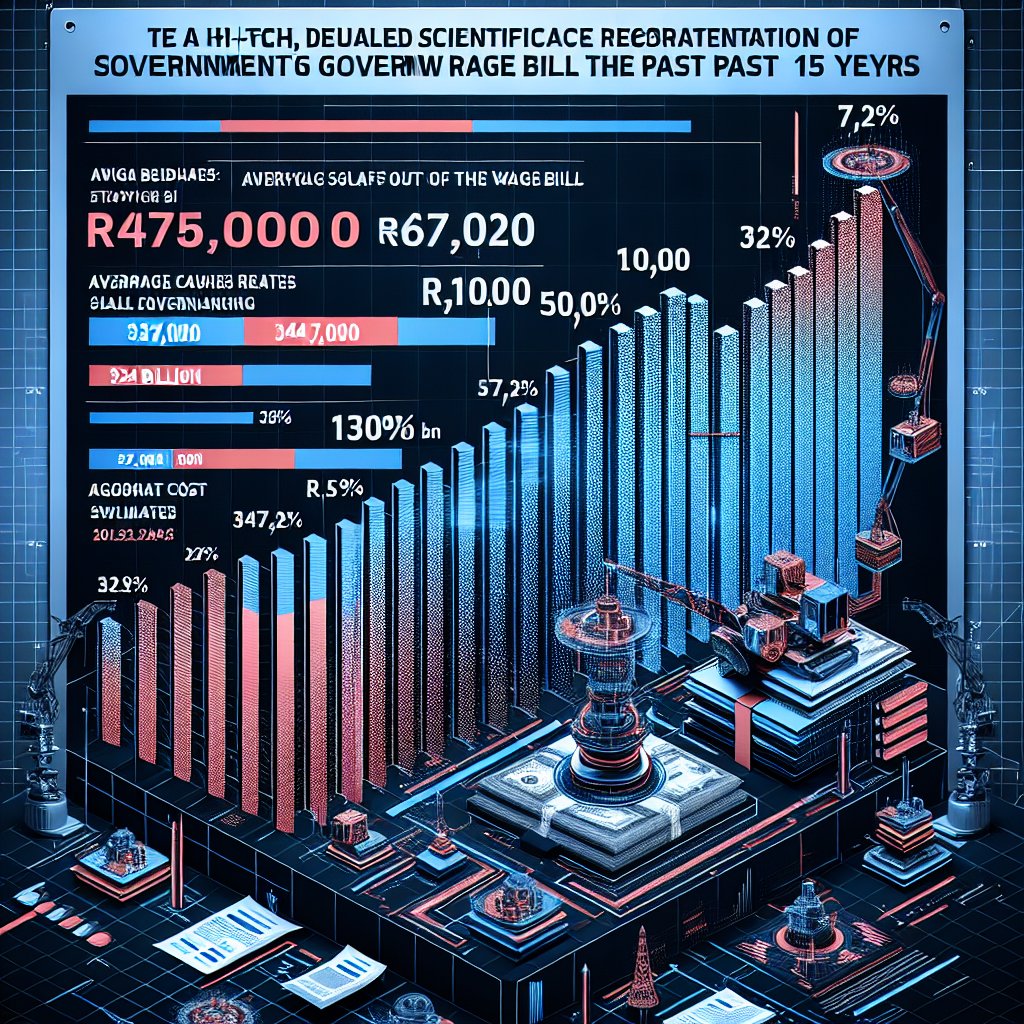Image created by AI
Surge in South African Government Employee Salaries Over 15 Years
The earnings of government employees in South Africa have seen a notable increase over the past 15 years, according to the recent Macroeconomic Policy Review by the National Treasury. The report, which followed the Finance Minister’s Budget Speech, highlighted that the average government employee now earns R465,000 a year, marking a significant jump from R147,000 during the 2008/09 period.
This average annual remuneration has escalated by 7.2% per year, a rate substantially above inflation, illustrating the upward trajectory of government salaries against a backdrop of extensive fiscal evaluations from FY 2008/09 to FY 2021/22. Despite the government workforce numbers holding steady at approximately 1.25 million individuals, compensation spending outpaced non-compensation disbursements until a pivotal shift in 2020, when the government made the contentious decision to renege on the third year of a triennial wage agreement from 2018.
Graphs within the report shed light on the stark disparity between the rising cost of employee compensation and other areas of government expenditure. The move to retract wage increases was part of a broader strategy to decelerate the growth of the Public Sector Wage Bill, which encompasses salaries across national, provincial, and local governments, as well as those of state-owned entities.
Concerns over the surging Wage Bill have been acknowledged for more than a decade. However, efforts to compress this fiscal weight have had varying degrees of success. Between the fiscal years of 2013/2014 and 2023/2024, the wage bill's proportion of total government spending dropped from 35.7% to 32.1%. Nonetheless, the aggregate cost nonetheless swelled from R408 billion to an astounding R724 billion.
Minister Godongwana announced adherence to the recently concluded public sector wage agreement, which accords government employees a 7.5% pay rise, superseding the budget's projection of a 4.5% increase. However, this adherence carries a hefty price tag of an additional R23.6 billion for the Treasury, prompting departments to redirect R10.1 billion from their existing budget allocations.
In line with these salary adjustments, a growing faction of government employees has progressed into higher wage brackets. The hike in the cost of living has been leveraged during wage negotiations to secure better remuneration. Subsequently, the sector has witnessed a sharp uptick in the number of staff earning in excess of R1 million per annum — escalating from marginally over 10,000 employees in 2013/2014 to well over 55,000 in the 2023/2024 period. Currently, nearly half the government workforce earns more than R350,000 annually.
This wave of salary increments brings into question the sustainability of such growth and its ramifications on the national budget. With the government vowing to meet the latest wage adjustments, the impact on South Africa's already strained fiscal reserves will persist as a cornerstone of economic and political discourse.






